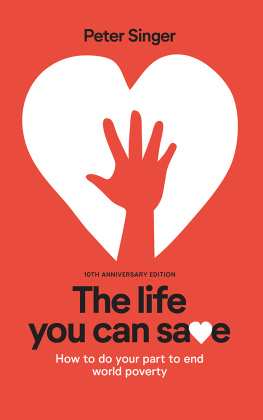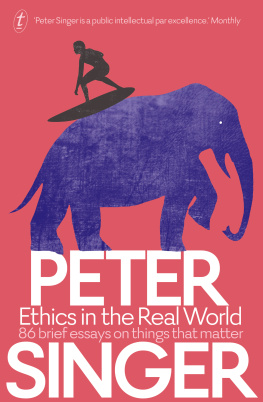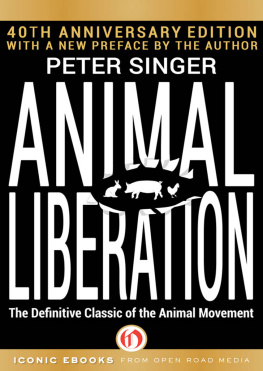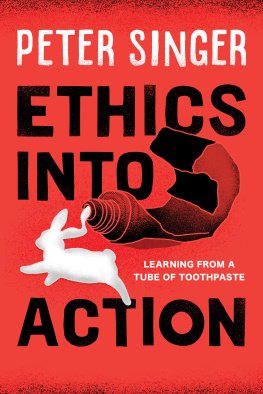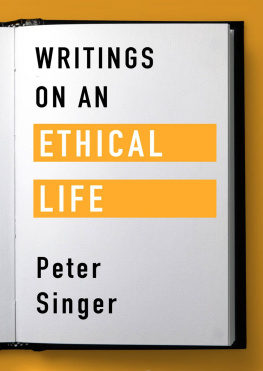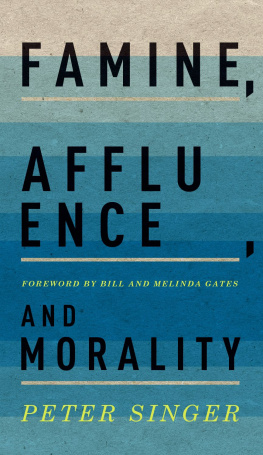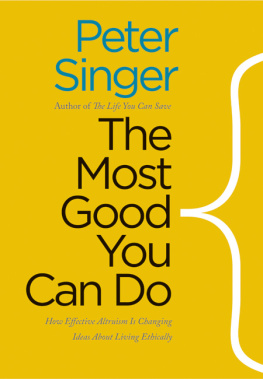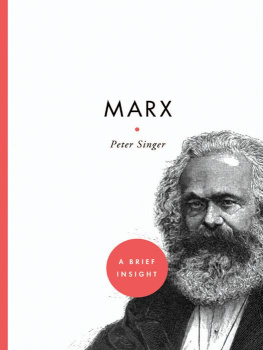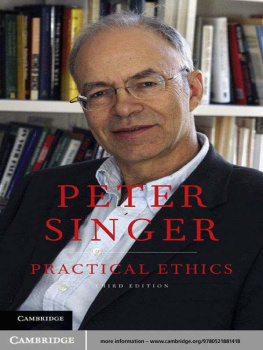
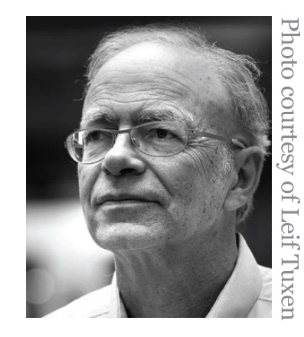
Peter Singer was born in Melbourne, Australia, in 1946 and educated at the University of Melbourne and the University of Oxford. He has taught at the University of Oxford, La Trobe University, and Monash University, and has held several other visiting appointments. Since 1999 he has been Ira W. DeCamp Professor of Bioethics at the University Center for Human Values at Princeton University and since 2005, Laureate Professor at the University of Melbourne, attached to the School of Historical and Philosophical Studies.
Singer first became well-known internationally after the publication of Animal Liberation in 1975. His other books include Practical Ethics, Rethinking Life and Death, One World Now, and The Most Good You Can Do. Three collections of his writings have been published: Writings on an Ethical Life and Ethics in the Real World, which he edited, and Unsanctifying Human Life, edited by Helga Kuhse. He was the founding president of the International Association of Bioethics; and, with Paola Cavalieri, of The Great Ape Project. In 2005, Time magazine named him one of the 100 most influential people in the world, and in 2009, The Sydney Morning Herald and The Age included him among the most influential Australians of the past half century.
Following the publication of the first edition of The Life You Can Save, Singer founded the organization bearing the same name to help alleviate suffering and poverty in low-income countries. By recommending highly effective charities at www.thelifeyoucansave.org, the organization aims to make it easy for people to do the most good with their donations.
Singer is married and has three daughters and four grandchildren. His recreations, apart from reading and writing, include hiking and surfing.
The Life You Can Save relies on voluntary contributions to spread Peter Singers ideas on donating to effective charities and thus to reduce global poverty.
Praise for
The Life You Can Save
A persuasive and inspiring work that will change the way you think about philanthropy and that shows us we can make a profound difference in the lives of the worlds poorest.
Bill & Melinda Gates
Mr. Singer is far from the worlds only serious thinker on poverty, but with The Life You Can Save he becomes, instantly, its most readable and lapel-grabbing one.
The New York Times
Faced with [Peter Singers] argument, it is hard not to ask yourself how your own giving measures up. Yes, I will go on buying things I do not really need. But, yes, this book has persuaded me that I should give moresignificantly moreto help those less fortunate.
Financial Times
Powerful and clarifying Singer sets up a demanding ethical compass for human behavior.
Sunday Star Ledger
This short and surprisingly compelling book sets out to answer two difficult questions: why people in affluent countries should donate money to fight global poverty and how much each should give . Singer doesnt ask readers to choose between asceticism and self-indulgence; his solution can be found in the middle, and it is reasonable and rewarding for all.
Publishers Weekly (starred review)
Be warned: reading this book may be dangerous to your definitions of morality, charity, and how to be good. That is why you must read it.
The Christian Science Monitor
If you think you cant afford to give money to the needy, I urge you to read this book. If you think youre already giving enough, and to the right places, still I urge you to read this book. In The Life You Can Save , Peter Singer makes a strong caselogical and factual, but also emotionalfor why each of us should be doing more for the worlds impoverished. This book will challenge you to be a better person.
H olden K arnofsky , co-founder, GiveWell
Peter Singer challenges each of us to ask: am I willing to make poverty history? Skillfully weaving together parable, philosophy, and hard statistics, he tackles the most familiar moral, ethical, and ideological obstacles to building a global culture of philanthropy, and sets the bar for how we as citizens might do our part to empower the worlds poor.
R aymond C. O ffenheiser , president, Oxfam America
ALSO BY PETER SINGER
Democracy and Disobedience
Animal Liberation
Practical Ethics
Marx
Animal Factories (with Jim Mason)
The Expanding Circle
Hegel
The Reproduction Revolution (with Dean Wells)
Should the Baby Live? (with Helga Kuhse)
How Are We to Live?
Rethinking Life and Death
Ethics into Action
A Darwinian Left
Writings on an Ethical Life
Unsanctifying Human Life (edited by Helga Kuhse)
One World
Pushing Time Away
The President of Good and Evil
How Ethical Is Australia? (with Tom Gregg)
The Ethics of What We Eat (with Jim Mason)
The Point of View of the Universe (with Katarzyna de Lazari-Radek)
The Most Good You Can Do
Famine, Affluence and Morality
Ethics in the Real World
Utilitarianism: A Very Short Introduction (with Katarzyna de Lazari-Radek)
Copyright 2009 by Peter Singer
Tenth Anniversary edition revisions 2019 by Peter Singer
All rights reserved.
Tenth Anniversary edition edited by The Life You Can Save
Cover design by W. H. Chong
Released throughout the world by The Life You Can Save, Bainbridge Island, Washington, USA & Sydney, Australia.
Previously published and distributed in the United States by Random House, an imprint of The Random House Publishing Group, a division of Random House, Inc., 1745 Broadway, New York, New York 10019; in Australia and New Zealand by Text Publishing, Melbourne; and in the United Kingdom by Picador, an imprint of Pan MacMillan, London.
First edition published March 2009; Paperback published September 2010
Tenth Anniversary edition published November 2019
ISBN 978-1-7336727-1-9
www.thelifeyoucansave.org
9 8 7 6 5 4
Although the author and publisher have made every effort to ensure that the information in this book was correct at press time, the author and publisher do not assume and hereby disclaim any liability to any party for any loss caused by errors or omissions, whether such error or omissions result from negligence, accident, or any other cause.
The Life You Can Save is a not-for-profit entity, founded by Peter Singer and established in the United States and Australia.
For more information, please visit www.thelifeyoucansave.org
To Renata, without whom
Contents
Foreword: Ive never looked at it that way before.
Michael Schur, Creator of The Good Place
I first came across Peter Singer in 2006, via an article he wrote in the New York Times Magazine. He was discussing the Golden Age of Philanthropy. Warren Buffett had just pledged $37 billion to the Gates Foundation and other charities, which on an inflation-adjusted basis, Singer noted, was more than double the lifetime total given away by two of the philanthropic giants of the past, Andrew Carnegie and John D. Rockefeller, put together. Singer posed some simple questions: What should a billionaire give to charity? What should we (non-billionaires, ostensibly) give? And how do we calculate these numbers?
What struck me about Singers arguments was that the amount in question, for him, wasnt theoretical. It was calculable. There is an amount of money one needs to live a decent lifeto pay for a reasonable amount of rent, clothes, food, and leisure. And if you have more than that amount, he posited, you should give it awaybecause you dont need it, and someone else does.
Next page
